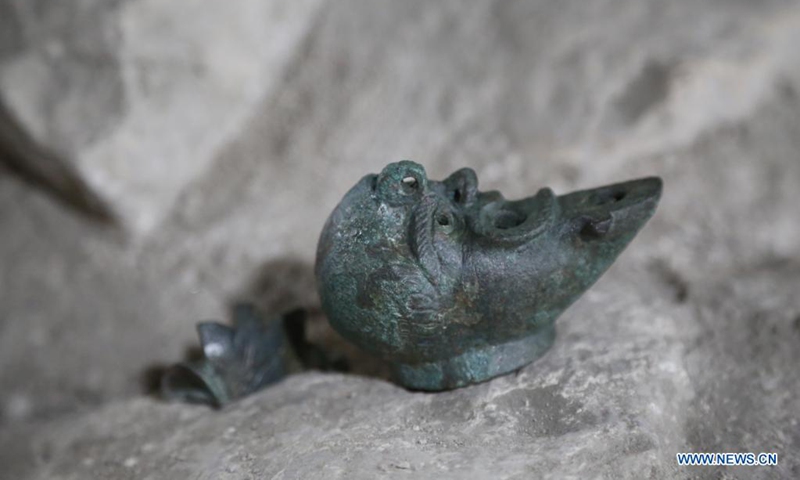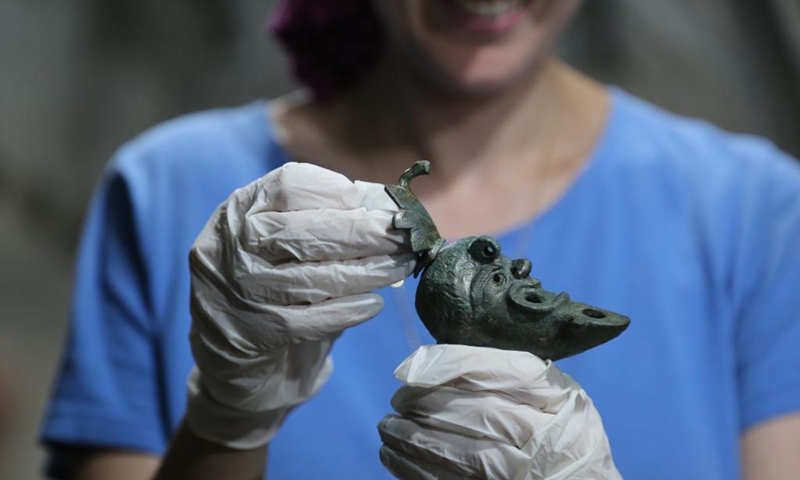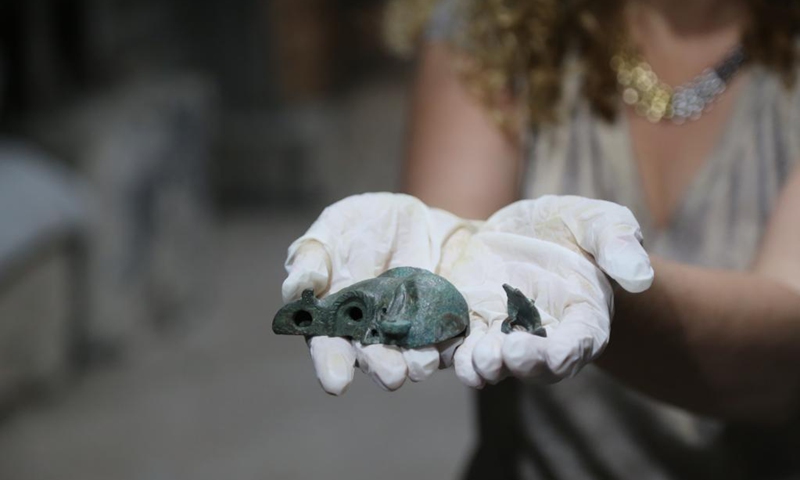
Photo taken on May 5, 2021 shows an 1,900-year-old half-faced oil lamp uncovered during excavations in the ancient Pilgrimage Road at the City of David archaeological site in Jerusalem. TO GO WITH "Israel discovers 1,900-year-old half-faced oil lamp meant for luck".(Photo: Xinhua)

An Israeli archeologist shows an 1,900-year-old half-faced oil lamp uncovered during excavations in the ancient Pilgrimage Road at the City of David archaeological site in Jerusalem on May 5, 2021. TO GO WITH "Israel discovers 1,900-year-old half-faced oil lamp meant for luck".(Photo: Xinhua)

An Israeli archeologist shows an 1,900-year-old half-faced oil lamp uncovered during excavations in the ancient Pilgrimage Road at the City of David archaeological site in Jerusalem on May 5, 2021. TO GO WITH "Israel discovers 1,900-year-old half-faced oil lamp meant for luck".(Photo: Xinhua)
Israeli archaeologists have discovered a rare bronze oil lamp meant to bring good luck, the Israel Antiquities Authority said Wednesday.
The lamp, dated at about 1,900 years ago, was uncovered during excavations in the ancient Pilgrimage Road at the City of David archaeological site in Jerusalem.
The artifact was discovered in the foundations of a building upon the road.
The archaeologists said the lamp was intentionally deposited to bring good fortune to the building's residents during the Roman period.
Such foundation and under-floor deposits were prevalent in the ancient world and were intended for luck and to ensure the continued existence of the building and its occupants.
"The offering of this lamp may attest to the importance of the building, which may have been linked to the protection of the Pool of Siloam, the city's primary water source," the archaeologists said.
The lamp was poured into a sculpted mold that was shaped like half of a face of a bearded man with a grotesque appearance. Its tip was shaped like a crescent moon, and the handle like the acanthus plant.
The decoration that appears on the lamp is reminiscent of a common Roman artistic motif, like a theatrical mask.
"The lamp may have been attached to a flat object or wall, serving as a wall lamp, but the possibility that it was used in some sort of ceremonial ritual should not be ruled out," the researchers concluded.
